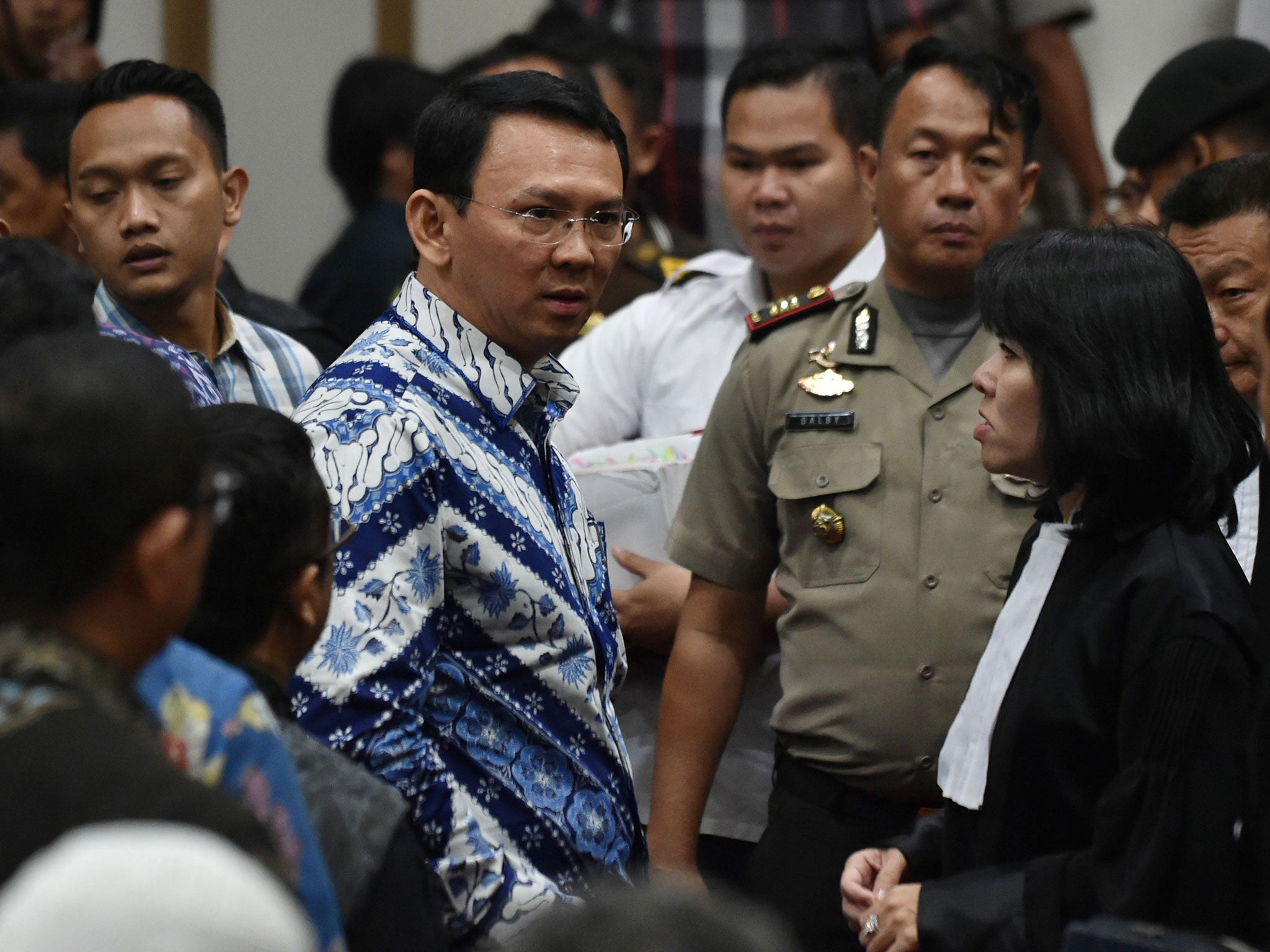The Independent's journalism is supported by our readers. When you purchase through links on our site, we may earn commission.
This is what the Quran actually says about blasphemy
Blasphemy laws began in Christian countries, and started appearing in Muslim majority countries after British imperialism. But if we go back to the Quran, we can see that what's happening in Saudi Arabia, Indonesia and Pakistan isn't faithfully Islamic at all

In the 1979 hit British comedy Monty Python’s Life of Brian, an elderly man is charged and convicted for committing blasphemy. His crime? Uttering the name Jehovah. He insists he’s innocent, but an angry crowd is ready to unleash a barrage of stones on him.
It seems life imitates art. Last week Ireland investigated Stephen Fry, an outspoken critic of religion, for allegedly running foul of a 2009 blasphemy law. In the United States this week, a woman was convicted of laughing at Attorney General Sessions, and faces a year in prison.
Blasphemy laws historically began in Christian Europe as a means to prevent dissent and enforce the church’s authority. They were exported to Muslim majority nations via British imperialism. Today, just about every Muslim majority nation that has blasphemy laws can trace them back to British statute from centuries prior.
Nowadays, blasphemy cases are becoming increasingly popular as a means to persecute minorities in nations like Pakistan, Saudi Arabia and Indonesia. In Pakistan, notable Ahmadi Muslim Tahir Mehdi was finally released after nearly two years in prison for the alleged blasphemy of claiming he is Muslim. Meanwhile another Ahmadi Muslim — 81-year-old Shukoor Ahmad — serves an eight-year prison term for the same alleged crime of blasphemy.
In Saudi Arabia, Raif Badawi is still in prison for the alleged blasphemy of being an atheist. And this week in Indonesia, courts convicted Jakarta’s Governor Aho of blasphemy: the governor, who is a Christian, faces a two year prison sentence. Ahok’s crime? He rebuked claims by clerics that the Quran mandates Muslims to vote for a Muslim over a non-Muslim.

By convicting Governor Ahok of blasphemy, Indonesia disgraces itself, violates human rights and ignores Islamic teachings. In fact, despite addressing blasphemy dozens of times, the Quran prescribes absolutely no worldly punishment.
That notwithstanding, Governor Ahok is right that the Quran does not mandate Muslims to vote for a Muslim over a non-Muslim. Instead, Quran 4:59-60 commands Muslims: “Verily, Allah commands you to make over the trusts to those entitled to them, and that, when you judge between men, you judge with justice... O ye who believe! Obey Allah, and obey His Messenger and those who are in authority among you.”
Thus, the Quran commands Muslims to judge with justice, not religion. Likewise, the Quran could have added that the faithful should only obey those in authority who are Muslim – but that notable omission speaks volumes otherwise.
So, in a twist of irony, the Christian governor accused of blasphemy cited the Quran correctly, while the Muslim clerics punishing him are themselves wrong. Thus, if such clerics are that hell-bent on blasphemy laws, they should arrest themselves and set Governor Ahok free.
But they won’t, because blasphemy laws don’t exist to protect God: they exist to protect the fragile egos of corrupt clerics. Indonesia is the world’s largest Muslim nation and has long stood as a beacon of hope. But Governor Ahok’s conviction, along with the ongoing violent persecution of Indonesia’s Ahmadi Muslims, threatens this thriving democracy’s future.

The solution is embedded in a revival of true Islam based on a proven model of success and reformation of Muslims. Muslim leadership must be more accountable to protecting the rights of religious minorities in Muslim majority nations. How tragic that a Christian should be sentenced to prison for a peaceful difference of opinion, while the Prophet Mohammed instead wrote in a letter that “Christians are my citizens and I hold out against all that displeases them”.
In 2009, His Holiness the Khalifa of Islam Mirza Masroor Ahmad delivered a landmark address in Frankfurt, Germany, where he implored religious freedom, concluding: “The followers of any religion should be able to practise their religious customs freely; otherwise if the government will interfere with religion, in this civilised world, such interference will negate their claim to being secular and discharging the rights of others.”
So how did that Monty Python blasphemy scene end? Well, it ends when the judge charged with stoning the accused to death is himself stoned to death after accidentally uttering the word Jehovah. There is a lesson in this for all governments who punish peaceful difference of opinion: in doing so, you ultimately destroy yourselves.
Qasim Rashid is an attorney, author, and national spokesperson for the Ahmadiyya Muslim Community USA. Follow him on Twitter @MuslimIQ
Join our commenting forum
Join thought-provoking conversations, follow other Independent readers and see their replies
Comments
Bookmark popover
Removed from bookmarks